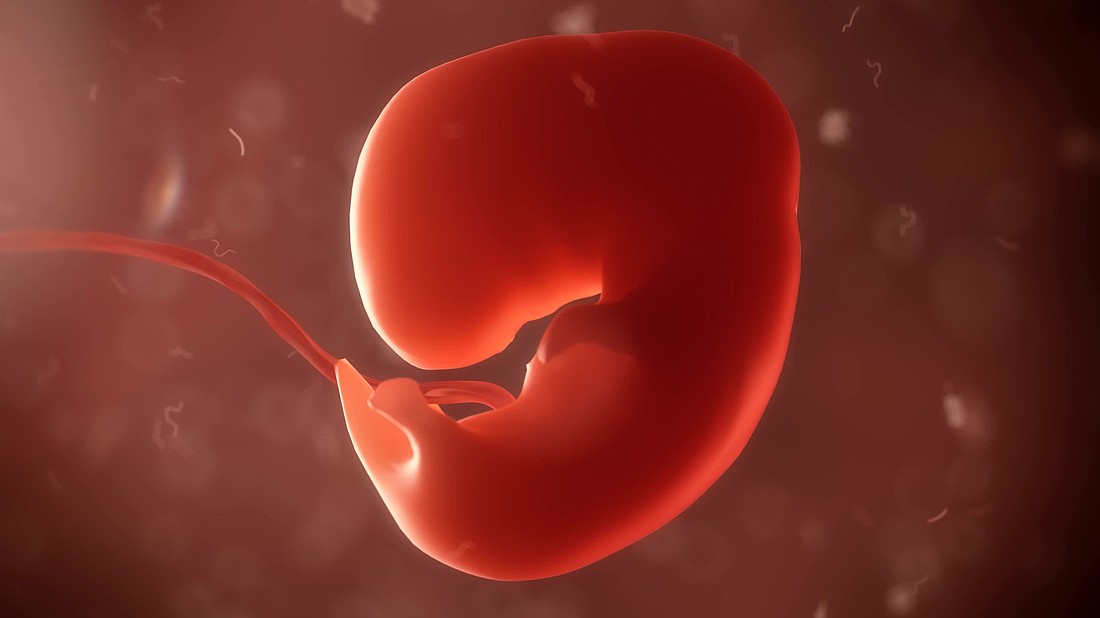- December 20, 2024
-
-
Loading

Loading

After lawmakers passed a 15-week limit last year, the Florida House on Thursday started moving forward with a proposal that would prevent abortions after six weeks of pregnancy.
The GOP-controlled House Healthcare Regulation Subcommittee voted 13-5 along party lines to approve the proposed restrictions (HB 7) after hearing often-emotional testimony about issues such as women’s health and pregnancies caused by rapes.
Bill sponsor Jenna Persons-Mulicka, R-Fort Myers, said the bill “promotes life” and supports families.
“It’s a bill that recognizes the importance and value of the life of innocent, unborn human beings,” Persons-Mulicka said.
But Rep. Christine Hunschofsky, D-Parkland, described the bill as a “de facto abortion ban” and said it doesn’t take into account different circumstances that women face when they become pregnant.
“We talk about being a free state, and this is literally the antithesis of that,” Hunschofsky said.
The bill, filed last week, has quickly refueled a fierce debate about abortion rights in Florida — amid a broader national debate after the U.S. Supreme Court last year overturned the landmark Roe v. Wade abortion-rights decision.
The Senate Health Policy Committee is scheduled Monday to take up a bill (SB 300) that is similar to Persons-Mulicka’s bill. With House Speaker Paul Renner, R-Palm Coast and Senate President Kathleen Passidomo, R-Naples, supporting the bills — and Republicans holding large majorities in the Legislature — a six-week abortion limit likely will pass in the coming weeks.
The proposals, however, include a major caveat: Seven abortion clinics and a physician filed a constitutional challenge to the 15-week limit that lawmakers and Gov. Ron DeSantis approved last year.
A key issue in that case is whether the limit violates a privacy clause in the Florida Constitution that has helped protect abortion rights in the state for more than three decades. Under the House and Senate bills, moving to a six-week limit would be contingent on the Florida Supreme Court effectively upholding the 15-week law. It is unclear when the court will rule on the challenge, though it probably will be after the legislative session.
Persons-Mulicka said the decision to seek a six-week limit came after the U.S. Supreme Court overturned Roe v. Wade in June. When lawmakers passed the 15-week limit, the decision had not been issued.
She said fetal heartbeats can be detected at six weeks of pregnancy, and “what greater evidence of life is there but a heartbeat?”
Opponents, however, said many women don’t know they are pregnant at six weeks, which would prevent them from being able to get abortions in Florida.
“A six-week ban is almost a near-ban,” said Rep. Anna Eskamani, an Orlando Democrat who unsuccessfully proposed an amendment to strip the six-week limit from the bill. “It is going to be operationalized as a complete ban because people don’t know they are pregnant at six weeks.”
In addition to the six-week limit, the bill includes other proposed changes, such as barring the use of telehealth for abortions; requiring that abortion-inducing drugs be provided in person by physicians; preventing state funds from being used to pay for women to travel to other states for abortions; and expanding services provided through organizations that counsel women against abortions.
Last year’s 15-week law has drawn criticism because it does not include exceptions for pregnancies caused by rape or incest.
The new bills would allow abortions up to 15 weeks of pregnancy in cases of rape or incest, but they would require women to present documentation to prove they were victims. Such documentation could include restraining orders, police reports or medical records.
Opponents of the bill, however, said many women do not report that they are victims of rape or incest, which would prevent them from having abortions.
The House panel approved the bill after hearing from numerous speakers, including from women who said they were raped or had to make difficult decisions about terminating pregnancies because of health issues.
Rep. Kelly Skidmore, D-Boca Raton, said abortion is health care, and lawmakers should make sure women can have the procedures “safely and “legally.”
“Abortion is health care. Abortion is health care. Abortion is health care,” Skidmore said. “We are talking about health care, but it has been turned into something like a moral decision to be made instead of health care.”
But Rep. Linda Chaney, R-St. Pete Beach, said many women are traumatized by past decisions to have abortions.
“I counseled women years after their abortions, and they are having complete mental breakdowns from their abortions,” Chaney said.